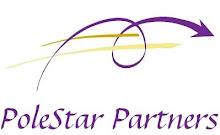It was nice to see Lewis Hyde's essay in last Sunday's New York Times Book Review. He makes many of the same arguments I've been making against the proposed settlement: effective monopoly by Google, the payment of monies collected from orphan books to authors of other books, and more.
Over at Slate, Tim Wu recently made his argument in support of the settlement. Wu argues that any monopoly obtained by Google would only be on books that are "unpopular" (orphan and/or out-of-print books), and therefore we should have no worries. In fact, an effective monopoly on orphan books would make Google the only source for a complete research library of books. Why search anywhere else, when you know Google has the only complete set of data? Google's expenditure on scanning "unpopular" out-of-print books is effectively a loss-leader (or charity?), almost disguising its grab at another monopoly.
In his final paragraph, Wu says, "It is Google's monopoly on Internet search that is valuable and potentially dangerous, not a quixotic project to provide access to unpopular books." What Wu misses is that the proposed settlement would give Google another "valuable and potentially dangerous" monopoly, this time in book search.
Finally, in today's New York Times, Miguel Helft reviews many of the objections to the Google book settlement. A highlight is a quote from Lawrence Lessig, author of Free Culture and Remix (among others), professor at Harvard, and a former supporter of the Google book settlement who now opposes it:
"I've seen these big powerful companies filled with people who drank the Kool-Aid. I really get the sense in which these people feel they are doing good. But I am always surprised by their failure to recognize how they will be perceived outside."
